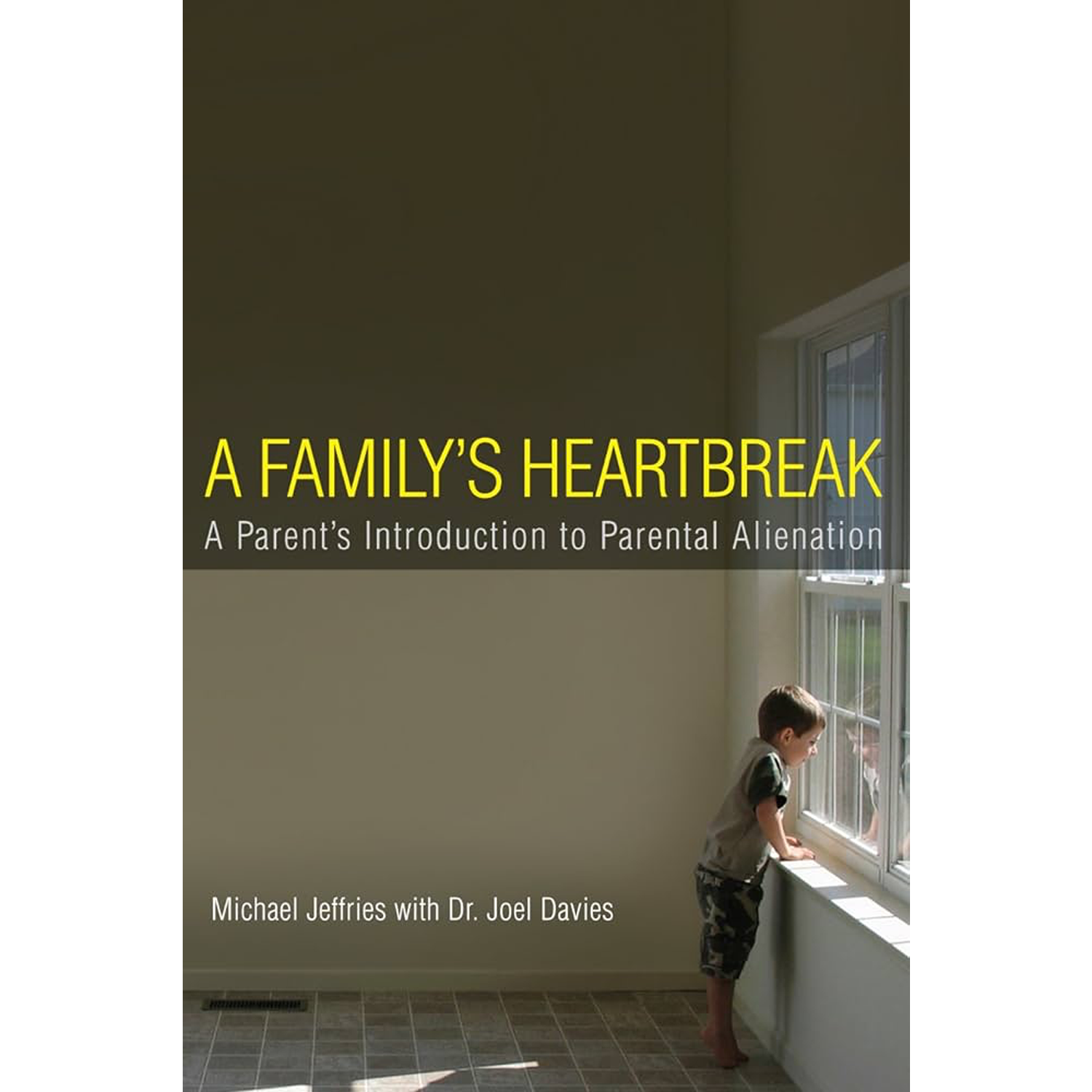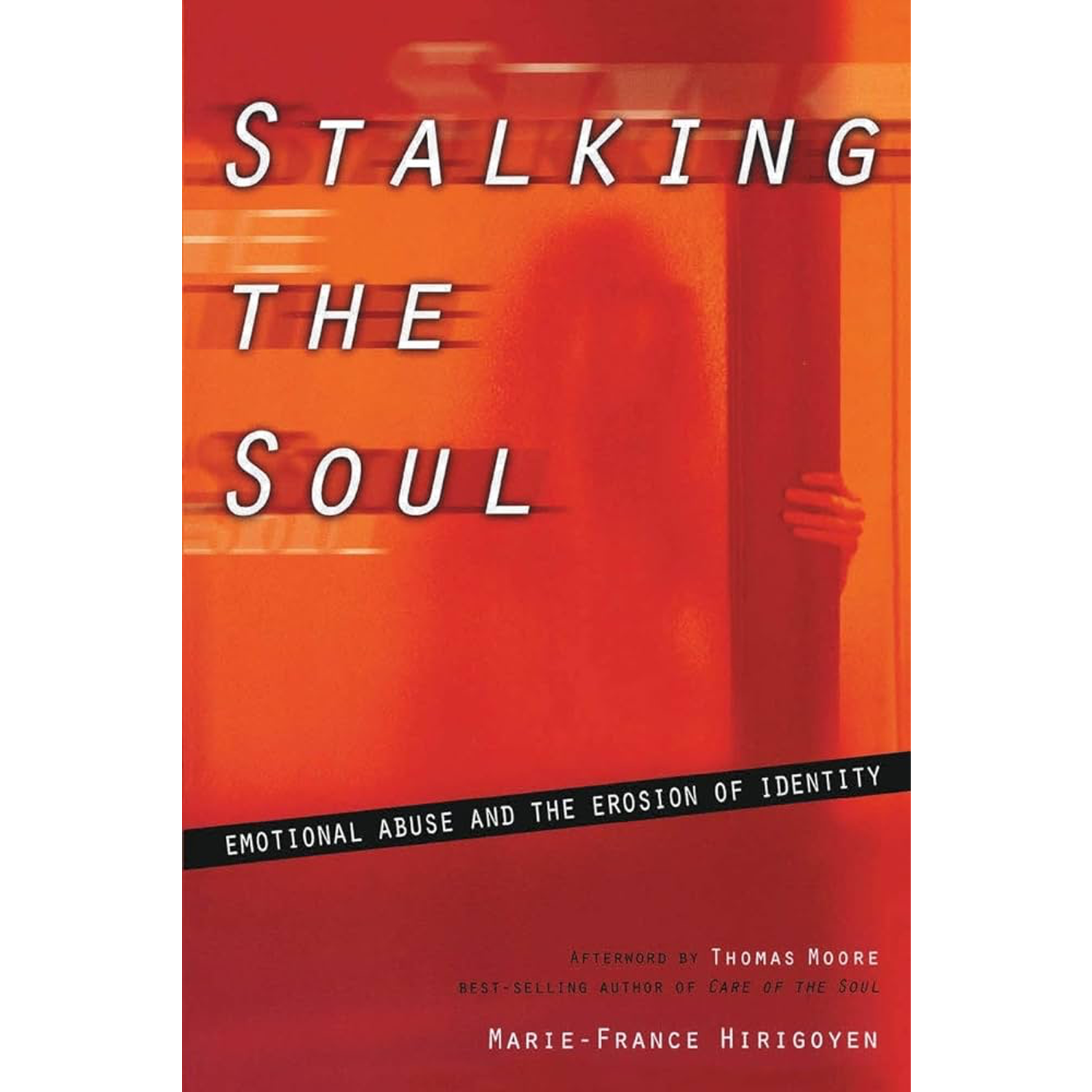
Books by PASG Members
Many PASG members are faculty members of universities in the United States and other countries. They have engaged in extensive clinical work and research regarding parental alienation. As a group, they have published hundreds of scholarly papers, book chapters, and books, some of which are listed here. The inclusion of any book on this website does not confer approval of the book or its author by the PASG Board of Directors.
A Family’s Heartbreak: A Parent’s Introduction to Parental Alienation
Michael Jeffries, Dr. Joel Davies | English, 2009
A Family’s Heartbreak: A Parent’s Introduction to Parental Alienation, is the true story of one parent’s struggle to maintain a normal, loving relationship with his young son in the face of overwhelming odds. From the emotionally devastating actions of the child’s other parent, to a court system and mental health community ill-equipped to deal with this destructive family dynamic, A Family’s Heartbreak: A Parent’s Introduction to Parental Alienation, is both an education in parental alienation and an eye opening experience for parents who don’t believe this could happen to them.
Divorce Casualties: Keeping Your Children Close While You’re Breaking Apart
Douglas Darnall Ph.D. | English, 2008
Some parents consciously, blatantly, and even maliciously denigrate their ex-spouse through negative comments and actions. Others simply sigh or tense up at the mention of the targeted parent, causing guilt and anxiety in the children. The result is a child full of hate, fear, and rejection toward an unknowing and often undeserving parent.
Exploring issues such as secrecy, spying, false accusations, threats and discipline, Divorce Casualties recognizes the often subtle causes of alienation, teaching you to prevent or minimize its damaging effects on your children. Dr. Darnall’s practical techniques for understanding the effects of alienation, including characteristics of alienators, symptoms of alienators, a self-report inventory and exercises, and real-life examples, will help even the most well-intentioned of parents renew their commitment to helping their child maintain a healthy, happy relationship with both parents.
Issue Focused Forensic Child Custody Assessment
Eric G. Mart | English, 2007
This is a scholarly analysis of the complex and controversial task of conducting a reasonable child custody evaluation. The author provides an interesting review and analysis of the relevant scientific and legal literature and provides some useful practical suggestions for moving forward. This book will be helpful to practitioners who want to learn more about child custody evaluations.
Children of Divorce: A Practical Guide for Parents, Therapists, Attorneys, and Judges
William Bernet, Don R. Ash | English, 2007
This book speaks to the adults who deal with children of divorce–parents, therapists, attorneys, and judges–and gets them all on the same page. The authors believe that parents and professionals should be able to communicate with a common language regarding the children of divorce. This book contains much specific advice on how to achieve basic goals: children should have a good relationship with both parents; divorced parents should find ways to make life as normal as possible for their children; and divorced parents and their children should accept the inevitable losses and disappointments and move on with their lives. Children of Divorce is organized around the use of parenting plans, agreements that are developed through the collaboration of the parents rather than imposed by a judge.
When Parents Hurt: Compassionate Strategies When You and Your Grown Child Don’t Get Along
Joshua Coleman | English, 2007
In When Parents Hurt, psychologist and parent Joshua Coleman, Ph.D., offers insight, empathy, and perspective to those who have lost the opportunity to be the parent they desperately wanted to be and who are mourning the loss of a harmonious relationship with their child. Through case examples and healing exercises, Dr. Coleman helps parents: reduce anger, guilt, and shame; learn how temperament, the teen years, their own or a partner’s mistakes, and divorce can strain the parent-child bond; come to terms with their own and their child’s imperfections; and develop strategies for rebuilding the relationship or move toward acceptance of what can’t be changed. By helping parents recognize what they can do and let go of what they cannot, Dr. Coleman helps families develop more positive ways of healing themselves and relating to each other.
Parental Alienation: How to Understand and Address Parental Alienation Resulting from Acrimonious Divorce or Separation
L. F. Lowenstein | English, 2007
Parental Alienation is a significant contribution to debates on the effects of family breakdown. Drawing on international research, the book discusses the problems for parents and children when parental alienation occurs. It identifies the signs of parental alienation syndrome (PAS). Concerned with the important task of seeking to remedy PAS, author L.F. Lowenstein’s basic principle is that both parents have the right and the responsibility to guide their children appropriately. The book recognizes children need to be protected from the consequences of being alienated from a parent, and that both parents need to be treated fairly by the system. He also addresses the role of the judiciary, where both the experts and the courts need to help parents resolve their differences to safeguard the welfare of their children. Parental Alienation addresses the important issues of mediation and of treatment, including how to identify and treat accusations of abuse, and it discusses the therapeutic methods required in PAS and the psychological assessment/treatment of pathologically induced alienation.
Hijos Manipulados Tras la Separación – Cómo Detectar y Tratar la Alienación Parental
Doménec Luengo, Arantxa Coca | Spanish, 2007
This book analyzes the episodes of parental alienation and familial conflict and how its effects on each family member – especially the children – progress over time, leading to psychological disorders as the final result for the children. The book also explores the most common causes of alienation and healthy, effective ways for the alienated parent to recover their bond with their children.
Adult Children of Parental Alienation Syndrome: Breaking the Ties That Bind
Amy J. L. Baker | English, 2007
Parental Alienation Syndrome (PAS) occurs when divorcing parents use children as pawns, trying to turn the child against the other parent. This book examines the impact of PAS on adults and offers strategies and hope for dealing with the long-term effects.
The International Handbook of Parental Alienation Syndrome: Conceptual, Clinical And Legal Considerations
Richard A. Gardner, S. Richard Sauber, Demosthenes Lorandos | English, 2006
The dramatic increase in the number of child-custody disputes since the 1970’s has created an equally dramatic need for a standard reference work that examines the growing social problem of children who develop an irrational hatred for a parent as the result of divorce. The International Handbook of Parental Alienation Syndrome features clinical, legal and research perspectives from thirty-two contributors representing views across eight countries, building on the work of the late Dr. Richard Gardner, a pioneer in the theory, practice, diagnosis and treatment of parental alienation syndrome (PAS). This unique title addresses the effects of PAS on parents and children, discusses issues surrounding reconciliation between parent and alicnated child and includes material published for the first time on incidence, gender and false allegations of abuse in PAS.
Handbook for the Study of Parental Acceptance and Rejection
Ronald Rohner, Abdul Khaleque | English, 2005
A Handbook containing description of the theoretical basis for study of parental acceptance and rejection, interpersonal relationships, and mental health outcomes related to these relationships. Measures to assess parent-child relations, intimate partner relations, behavioral control, discipline, parenting education, and other issues are included in the Fourth Edition of the Handbook.
Benchbook In The Behavioral Sciences: Psychiatry-Psychology-Social Work
Demosthenes Lorandos, Terence W. Campbell | English, 2005
Thousands of judges, attorneys, and court personnel have to deal with experts in the behavioral sciences every day. Expert testimony from behavioral scientists (psychiatrists, psychologists, and social workers) is the fastest growing area of expertise in American courts. The U.S. Supreme Court decisions in Daubert, Joiner, and Kumho Tire have profoundly altered the rules of evidence regarding expert testimony. Recent research demonstrates that the judges, attorneys, and court personnel required to implement those changes have little understanding of how to do this with the behavioral sciences. The Federal Rules of Evidence have just been amended to reflect the changes wrought by the Daubert, Joiner, Kumho Tire trilogy. And yet there are no guidelines, practice books, or judicial decision-making manuals that even remotely speak to “gatekeeping” responsibilities with the behavioral sciences. Lorandos and Campbell provide immediate access to authoritative information and immediate decision-making tools for judges, attorneys, and court personnel. It is also a comprehensive text with immediate utility as a decision-making tool. Extensively researched in law and the sciences, Benchbook in Behavioral Sciences provides up-to-date legal and scientific data to aid judges, attorneys, and court personnel in their daily decision-making with expert reports and testimony.
Divorce and Disengagement: Patterns of Fatherhood within and Beyond Marriage
Edward Kruk | English, 2003
This book’s purpose is to better portray divorced fatherhood and to provide family practitioners and policymakers with an empirically based understanding of the impact of divorce on non-custodial fathers, and of fathers’ disengagement from their children after divorce.
Elusive Innocence: Survival Guide for the Falsely Accused
Dean Tong | English, 2002
Elusive Innocence assists parents wrongly accused of abuse and their attorneys, as well as child protective investigators during their intake assessments, therapists, and judges. From actual case studies including the author’s, to chapters on the accused, accuser, alleged child victim, and agencies; to a detailed road map on how to counter unfounded and false child abuse and/or domestic violence allegations; to borderline personality disorder and parental alienation; and to sections on how to choose the right lawyer, Daubert and Frye criteria, and “Consistent With What, Exactly?” Elusive Innocence is the all-in-one handbook every parent, defense attorney, prosecutor, judge, therapist, social worker, teacher, and police officer should read.
Creating a successful parenting plan: A step-by-step guide for the care of children of divided families
A. Jayne Major | English, 2002
Creating a Successful Parenting Plan is an award-winning guide on how to successfully create a comprehensive parenting plan for parental custody in court. Often parents vying for custody do not know what to ask for or the important legal terms in order to make a solid case, and many cannot afford legal representation. This guide teaches parents everything they need to know about creating a solid case, including key legal terminology and specific, valid requests which the court can act upon.
The Fragile Alliance: An Orientation to Psychotherapy of the Adolescent
John E. Meeks, William Bernet | English, 2001
A discussion of the basic facts and skills required for therapists who work with troubled adolescents. This edition is more succinct, but includes new information and updated references. It covers important contemporary issues, such as juvenile violence and adolescent sex offenders.
Cross Examining Experts in the Behavioral Sciences
Terence Campbell, Demosthenes Lorandos | English, 2001
Cross Examining Experts in the Behavioral Sciences provides step-by-step guidance on how to refute behavioral scientists’ conjecture and speculation to ensure favorable rulings on Daubert, Kuhmo Tire and Frye standards. This set integrates hundreds of questioning strategies and actual questions to help you save time preparing your cases. It helps you keep pace with the fastest growing area of expert witness work with: Demonstrations on how to examine and challenge the expertise of mental health experts and the use of psychological tests Examinations of both the scientific research and the legal aspects behind a mental health expert’s testimony.
The Warmth Dimension: Foundations of Parental Acceptance-Rejection Theory
Ronald Rohner | English, 2000
This thought-provoking study is about love — the kind of love that parents can give or withhold from their children. The warmth dimension of parenting is characterized by parental acceptance at one end and by parental rejection at the other. This work examines the antecedents, consequences, and correlates of these phenomena in the United States and across many cultures. A vital question is posed: What gives some children the capacity to cope with perceived parental rejection more effectively than most children? The problematic relationship between perceived parental rejection and child abuse and neglect is also discussed. The author breaks new ground by offering a theoretical foundation posited in his parental acceptance-rejection theory (PARTheory) for the study of these and other issues.
In addition to summarizing national, international, and cross-cultural comparative (holocultural) data collected by researchers over half a century, the book lays out PARTheory’s epistemological assumptions and postulates. The Warmth Dimension offers valuable insights for multidisciplinary audiences in academic, research, and practitioner-oriented settings. Raising many important but heretofore unanswered questions, this book contributes substantially toward a common conceptualization and vocabulary for the many disciplines dealing with families and children in jeopardy of child maltreatment.
Stalking the Soul
Marie-France Hirigoyen | English, 2000
Emotional abuse exists all around us—in families and work. Stalking the Soul is a call to recognize and understand emotional abuse and, most importantly, overcome it. Sophisticated and accessible, it is vital reading for victims and health professionals.
Child Custody: Practice Standards, Ethical Issues, and Legal Safeguards for Mental Healthprofessionals
Robert Henley Woody | English, 2000
Essential reading for any mental health professional who is currently involved in custody cases as well as those who are considering work in the family law arena. The author uses his unique perspective as both a psychologist and attorney to delineate standards for practice when providing services to children and families when there are custody disputes. He describes the ethical issues, legal risks, and appropriate safeguards for providing services in child custody cases and defines the core areas for custody evaluations, including: child development, family relations, parenting skills, psychopathology, family systems and dysfunction, and the ruling-out of child abuse. The author stresses the importance of clarifying professional roles and functions. Specialized intervention and assessment strategies are presented as well as management issues, legal concerns, and guidelines for testimony. Includes over 100 valuable summary guidelines and caution. This is also a valuable resource for judges and attorneys who must evaluate the extent to which testimony by mental health practitioners is ethical, appropriate, and consistent with accepted practice standards. Also contains useful information for divorced and divorcing parents.
They Are My Children, Too: A Mother’s Struggle for Her Sons
Catherine Meyer | English, 1999
A harrowing and heartbreaking true story of international child abduction by the wife of the former British ambassador to the United States. This book is Catherine Meyer’s page-turning, play-by-play account of a living nightmare, the story of the determination of one woman fighting for her children and of the inadequacy of current international laws against child abduction, which fail to protect either parents or children against the occurrence of this kind of tragedy. In the process of pleading internationally for the right to be with her children, Meyer met and married British diplomat Christopher Meyer, providing a happy turn-of-events, if not quite a happy ending, to this story.


















